
Find Help
More Items From Ergsy search
-
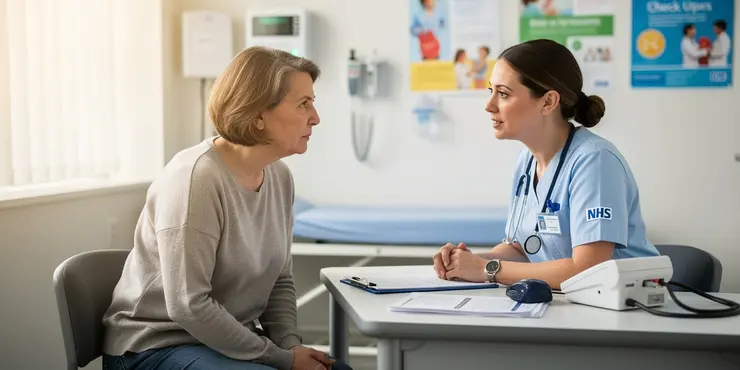
Why is high blood pressure called a 'silent killer'?
Relevance: 100%
-
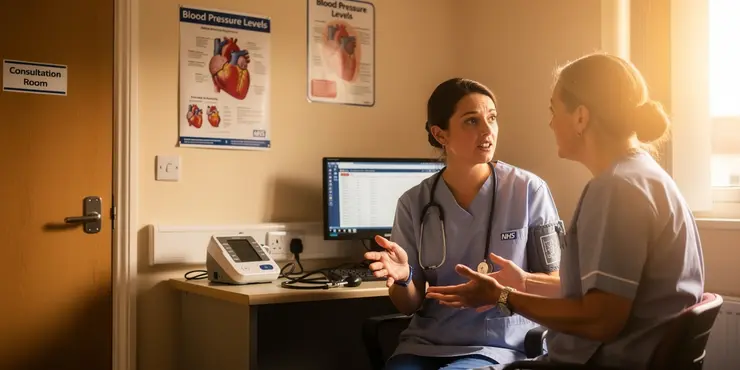
What is high blood pressure?
Relevance: 69%
-
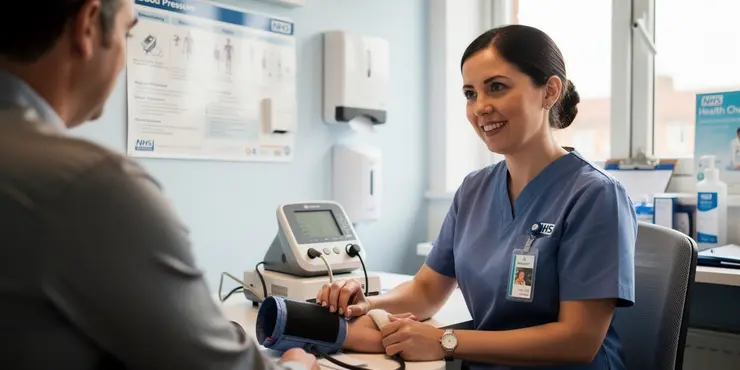
How is high blood pressure diagnosed?
Relevance: 57%
-
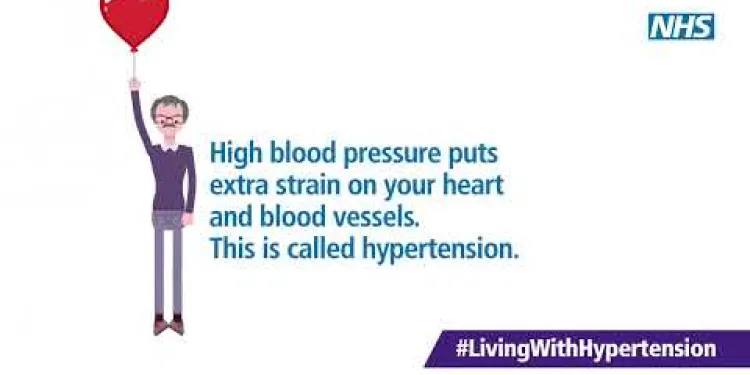
Blood pressure too high? Living with hypertension animation
Relevance: 54%
-
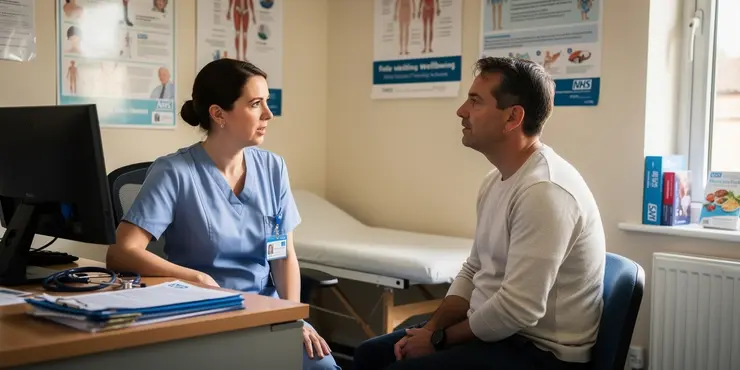
What causes high blood pressure?
Relevance: 53%
-
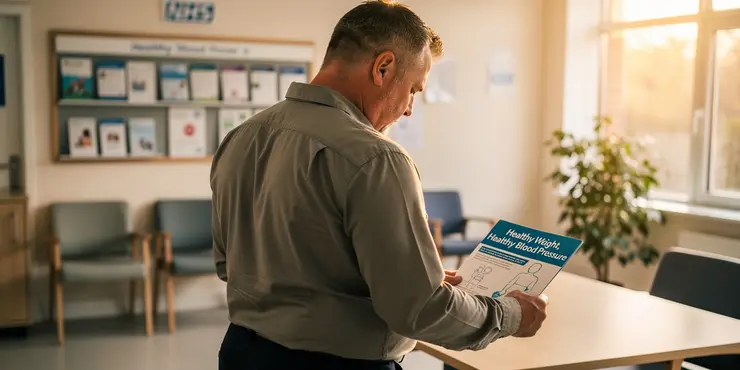
Can weight loss help reduce high blood pressure?
Relevance: 51%
-
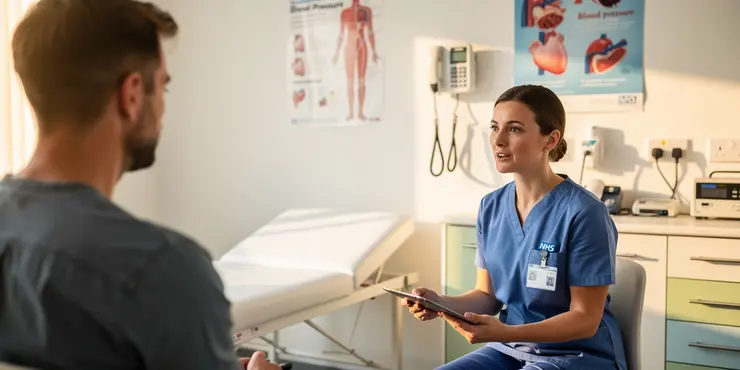
Can high blood pressure be prevented?
Relevance: 48%
-
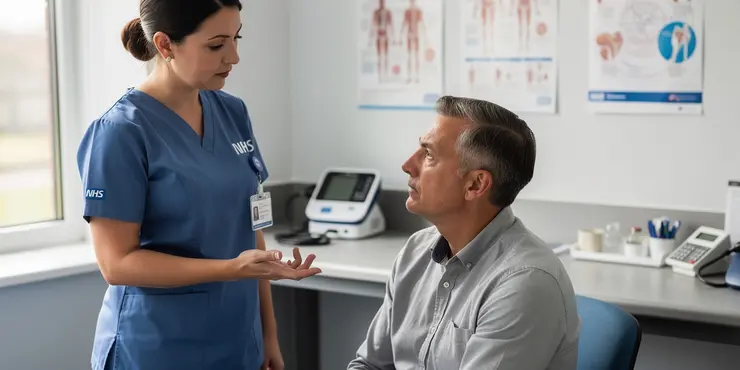
What are the symptoms of high blood pressure?
Relevance: 48%
-
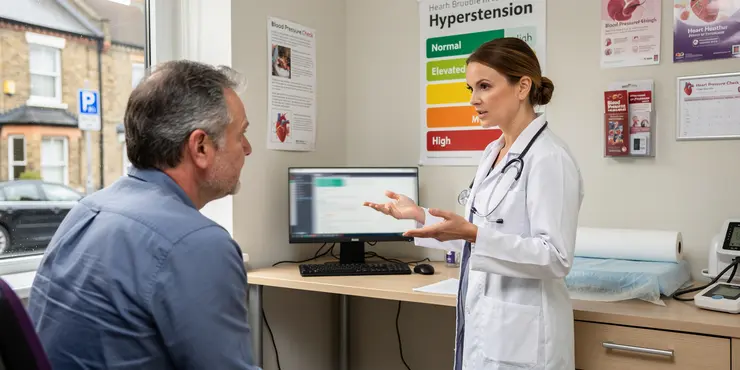
Can high blood pressure lead to other health problems?
Relevance: 47%
-
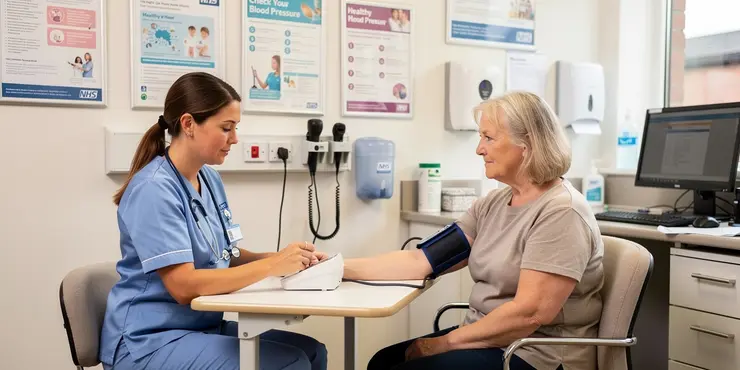
What are the risks of having high blood pressure?
Relevance: 46%
-
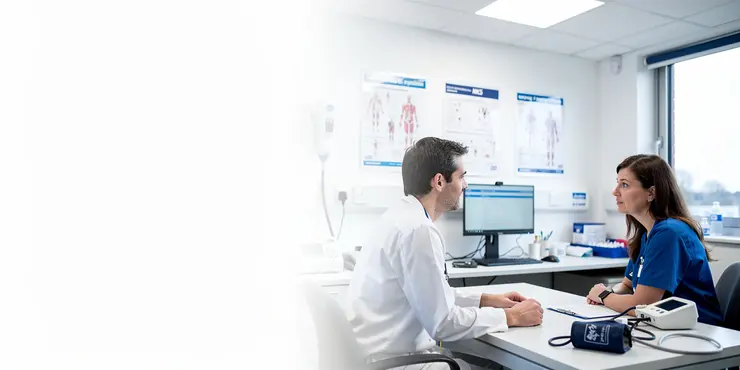
How can high blood pressure be treated?
Relevance: 46%
-
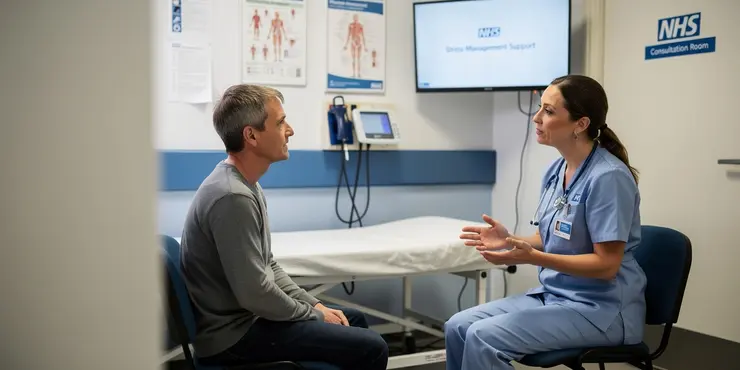
Can stress cause high blood pressure?
Relevance: 46%
-
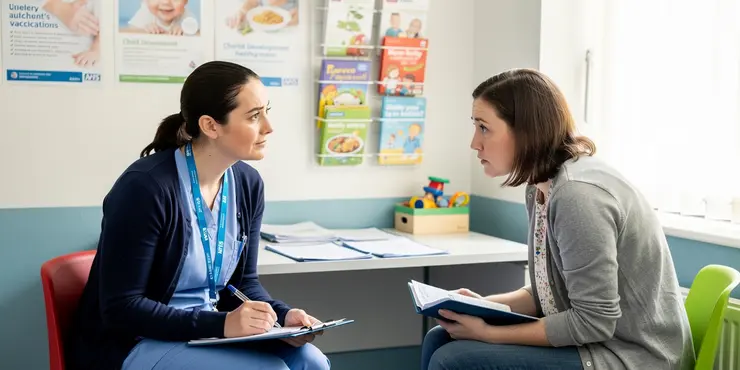
Should I test my child for high blood pressure?
Relevance: 44%
-
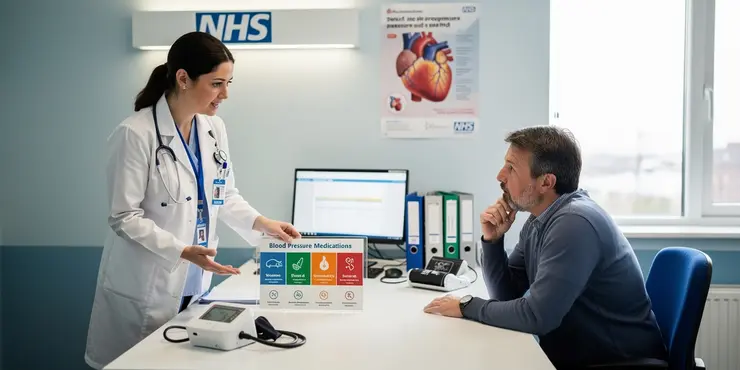
How do medications help control high blood pressure?
Relevance: 43%
-

Should people with high blood pressure avoid coffee entirely?
Relevance: 43%
-
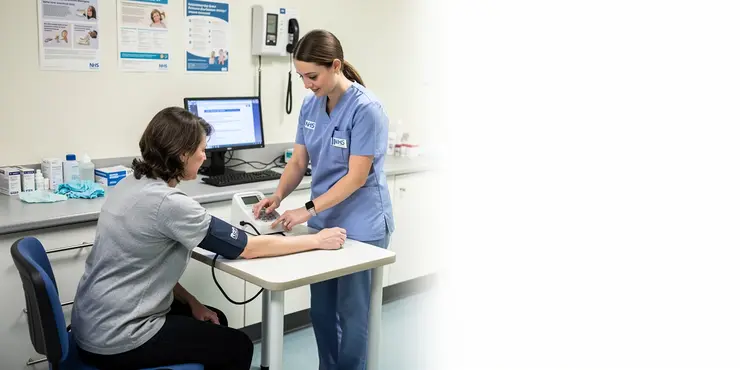
Seven Reaasons For Measuring blood pressure
Relevance: 42%
-
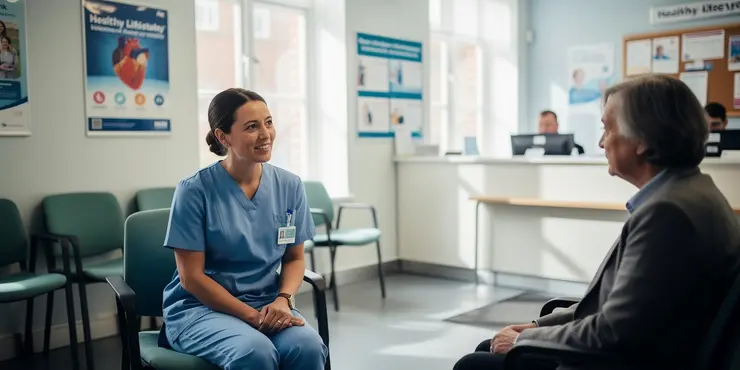
Is Your Morning Coffee a Risk Factor for High Blood Pressure?
Relevance: 41%
-
What is the ideal salt intake for someone with high blood pressure?
Relevance: 41%
-
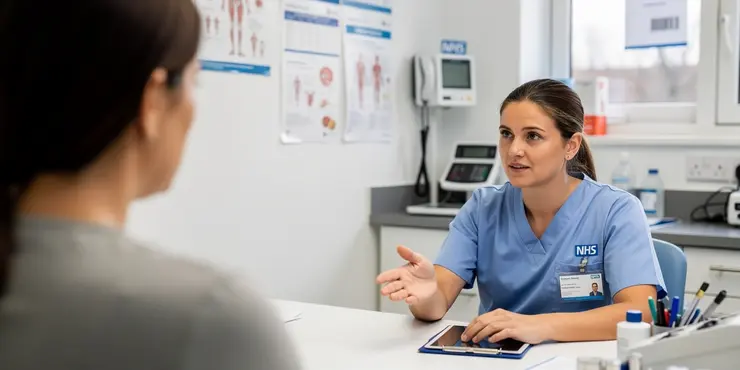
How much caffeine is generally considered safe for people with high blood pressure?
Relevance: 40%
-
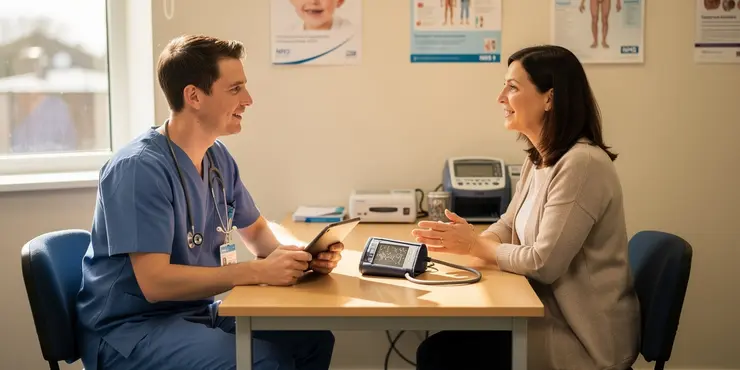
Is high blood pressure hereditary?
Relevance: 40%
-
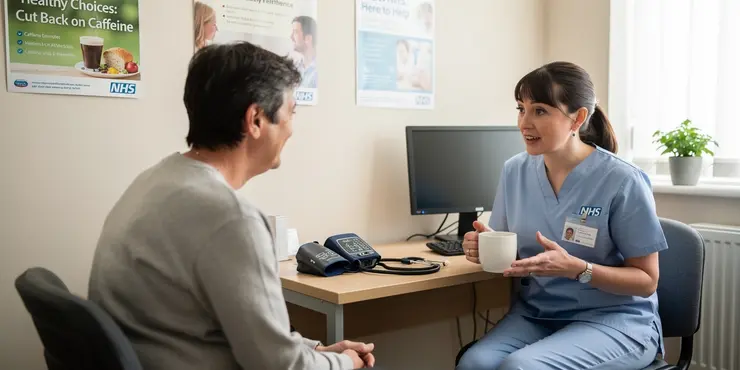
Does drinking coffee every morning increase the risk of developing high blood pressure?
Relevance: 37%
-

What are the symptoms of caffeine-induced high blood pressure?
Relevance: 35%
-
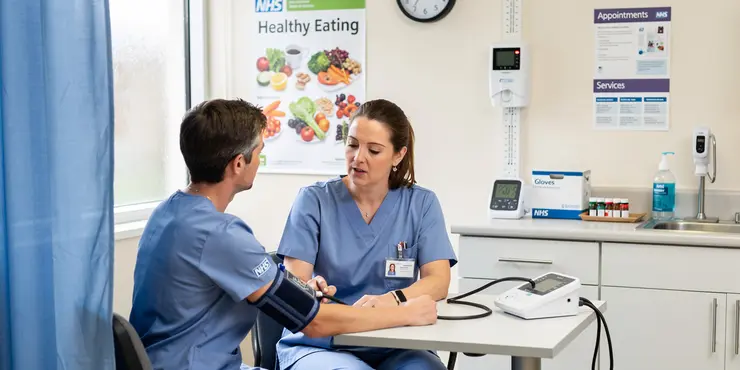
Does caffeine affect blood pressure?
Relevance: 35%
-

How does diet affect blood pressure?
Relevance: 35%
-
How does salt impact blood pressure?
Relevance: 34%
-
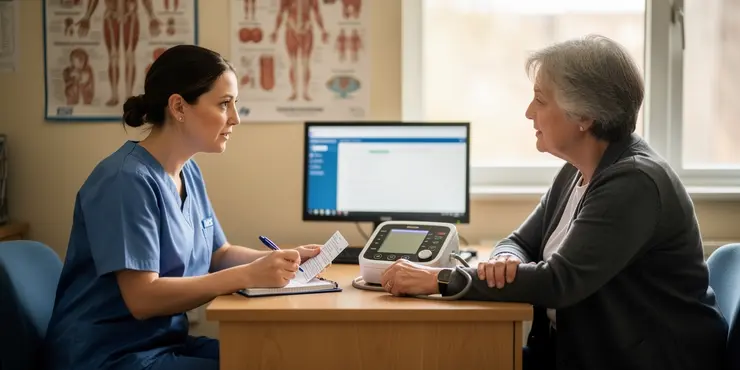
Is it safe to take blood pressure medication with coffee?
Relevance: 34%
-
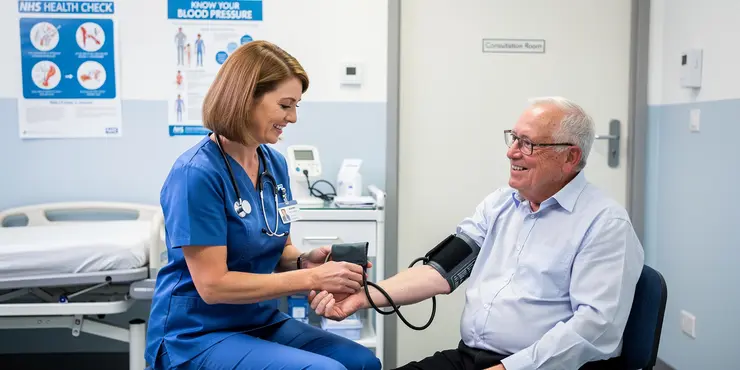
How to take someone's blood pressure
Relevance: 34%
-
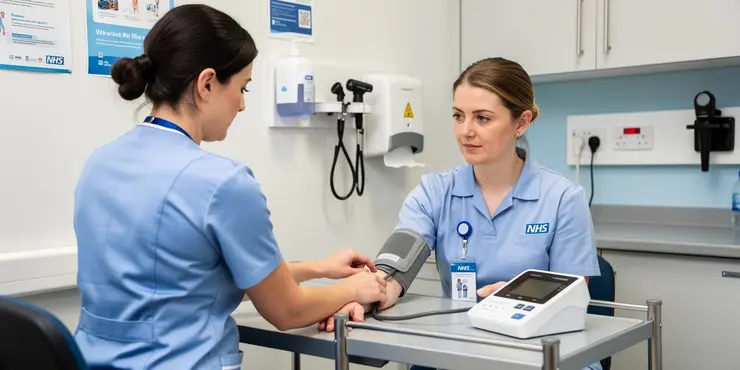
How often should I check my blood pressure?
Relevance: 33%
-
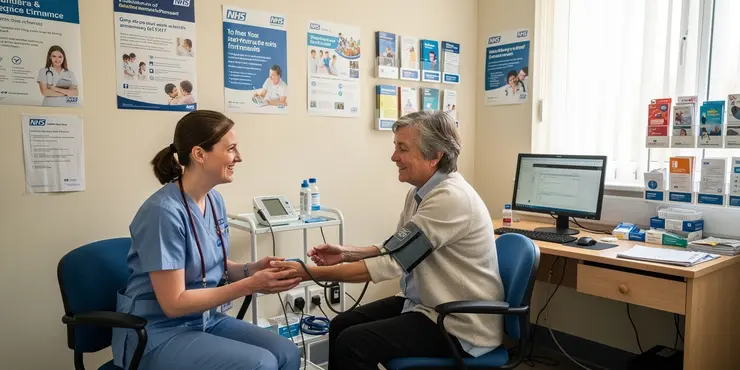
How does caffeine affect blood pressure?
Relevance: 33%
-
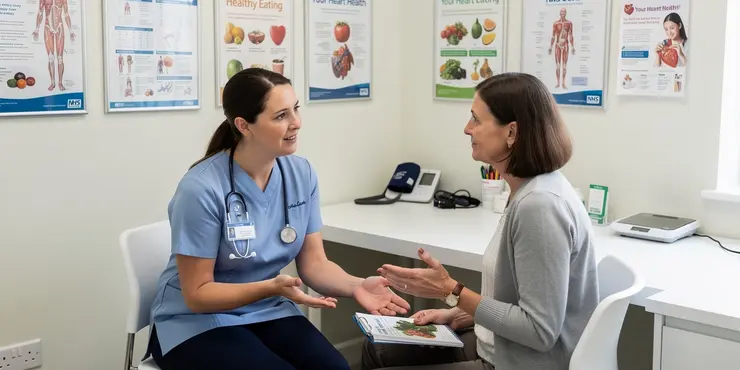
What is the role of potassium in managing blood pressure?
Relevance: 33%
-
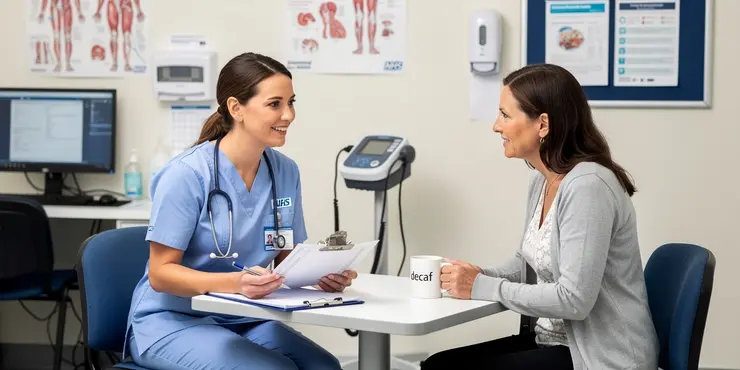
Can decaffeinated coffee affect blood pressure?
Relevance: 33%
-
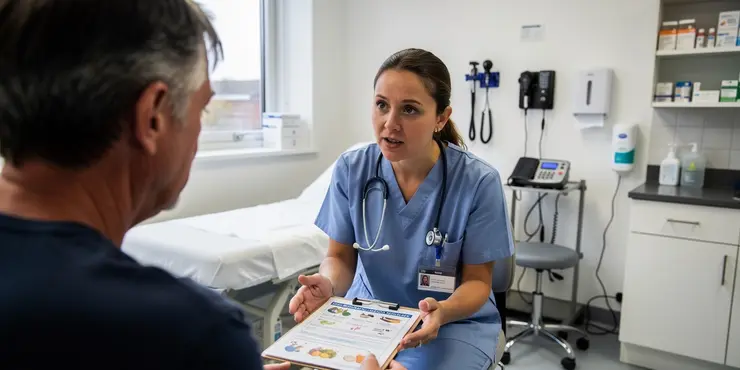
What lifestyle changes can lower blood pressure?
Relevance: 32%
-
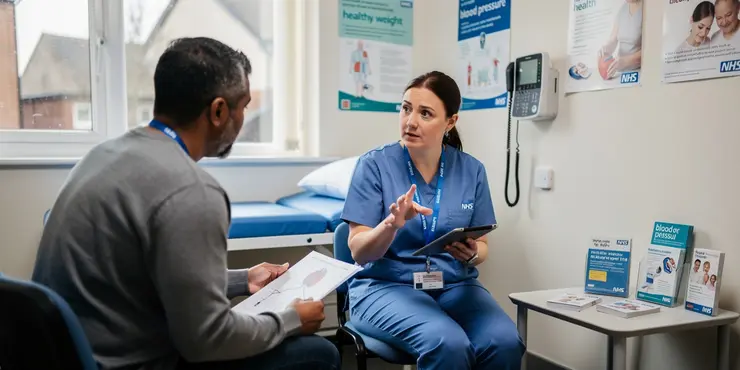
Can weight loss drugs affect blood pressure?
Relevance: 32%
-
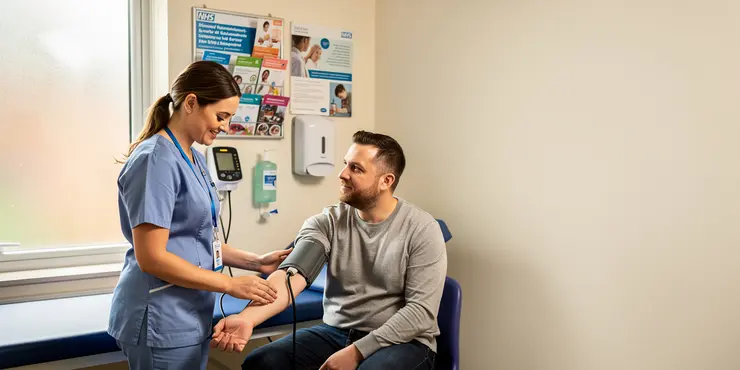
What is the link between coffee consumption and high blood pressure?
Relevance: 32%
-
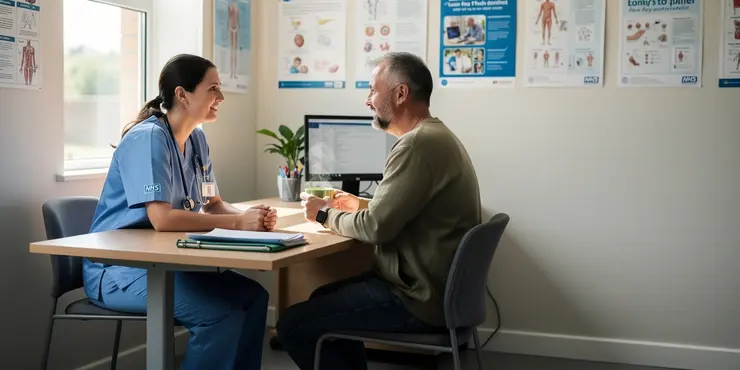
Is green tea a better alternative to coffee for blood pressure management?
Relevance: 31%
-
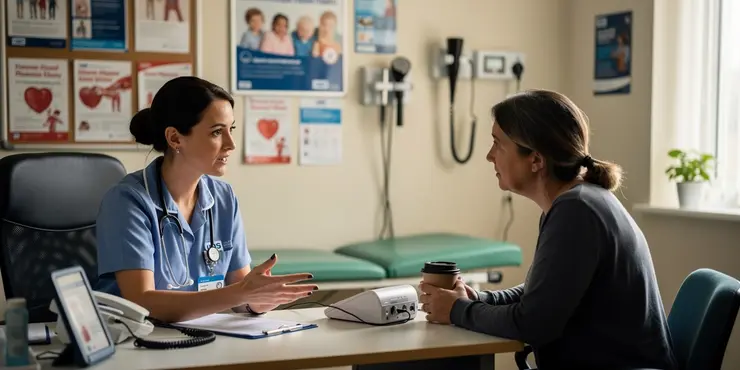
How can one minimize the impact of coffee on blood pressure?
Relevance: 31%
-
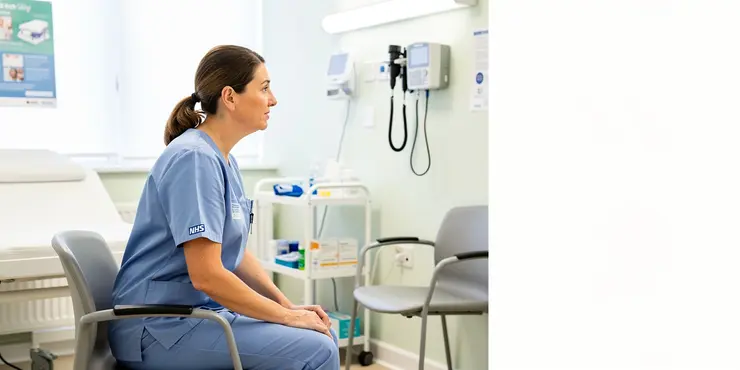
Are there any other factors in coffee that may affect blood pressure?
Relevance: 30%
-

What is high blood pressure in children?
Relevance: 29%
-

How does regular caffeine consumption impact tolerance and blood pressure?
Relevance: 29%
-
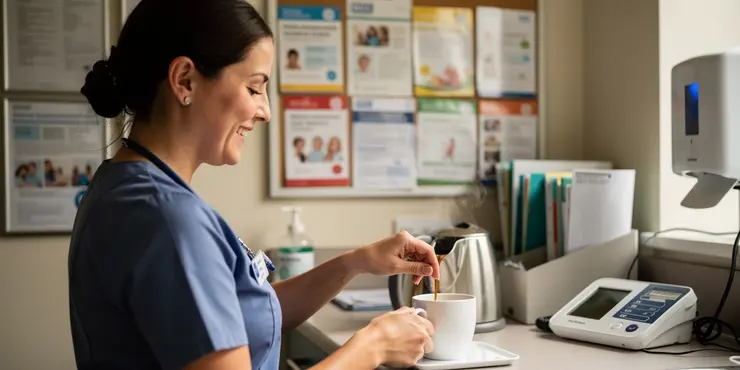
How soon after drinking coffee can blood pressure be affected?
Relevance: 29%
Understanding High Blood Pressure
High blood pressure, medically referred to as hypertension, is a common yet potentially severe health condition. In the UK, it affects a considerable portion of the population, often going unnoticed until it leads to more critical health issues. The pervasive nature of this condition means that understanding its effects and implications is vital.
Why Is It Called a 'Silent Killer'?
High blood pressure is often dubbed the 'silent killer' because it typically presents with no obvious symptoms. Many individuals are unaware they have it until serious complications arise. This lack of symptoms allows the condition to cause damage over time, affecting vital organs. Without regular monitoring, a person might only discover they have high blood pressure after significant harm has already occurred, such as a heart attack or stroke.
The Dangers of Untreated High Blood Pressure
When left untreated, high blood pressure can lead to a multitude of health problems. It increases the risk of heart disease, the leading cause of death in the UK. Additionally, it can result in heart failure, kidney disease, vision loss, and aneurysms. The silent progression of these conditions underscores the nickname 'silent killer.' Often, the first noticeable symptom for some people may be a heart attack or stroke, which could have been prevented with earlier detection and treatment.
Preventing High Blood Pressure
Preventative care is crucial in combating high blood pressure. Regular blood pressure checks are essential, especially for adults over the age of 40, as this is when the risk increases. Lifestyle changes can also play a significant role in prevention. A diet low in salt, saturated fats, and alcohol combined with regular physical activity can help maintain healthy blood pressure levels. Weight management and smoking cessation are also important steps in reducing risk.
Importance of Monitoring and Treatment
Once high blood pressure is detected, it is vital to adhere to prescribed treatments to manage and mitigate risks. This may include lifestyle modifications and medication. Regular consultations with healthcare professionals can ensure that any changes in blood pressure are promptly addressed. Early detection and consistent monitoring can turn what could be a 'silent killer' into a manageable health condition, allowing individuals to lead healthier and longer lives.
Conclusion
The term 'silent killer' effectively captures the dangerous nature of high blood pressure. Its ability to quietly inflict damage makes awareness, screening, and preventive measures particularly important. Despite the silent nature of the condition, proactive management can significantly lower the risks and improve overall health outcomes for individuals in the UK and worldwide.
Understanding High Blood Pressure
High blood pressure is when your blood moves around your body too forcefully. Doctors also call it hypertension. Lots of people have it, but many don’t know until it causes other health problems. It's important to learn about it to protect yourself.
Why Is It Called a 'Silent Killer'?
High blood pressure is called a 'silent killer' because you can have it without knowing. You might not feel any different, but it can still harm your body. If you don’t check your blood pressure, you might find out too late and have a heart attack or stroke.
The Dangers of Untreated High Blood Pressure
If you don’t treat high blood pressure, it can cause a lot of problems. It can make you more likely to have heart disease, which is very serious. It can also cause other issues like heart failure, kidney problems, losing your eyesight, and dangerous swelling in your blood vessels. Sometimes, people only find out they have it after they have a heart attack or stroke, which could have been prevented by getting checked earlier.
Preventing High Blood Pressure
It's important to try and stop high blood pressure before it starts. Getting your blood pressure checked regularly is important, especially if you are over 40 years old. You can help keep your blood pressure healthy by eating less salt and fat, drinking less alcohol, and exercising regularly. It also helps to keep a healthy weight and not smoke.
Importance of Monitoring and Treatment
If you find out you have high blood pressure, follow your doctor’s advice to keep it under control. This might include changing how you live or taking medicine. Seeing your doctor often will help you manage it so it doesn’t get worse. Catching it early can make it easier to manage and help you live a healthier life.
Conclusion
High blood pressure is quiet but can be dangerous. That's why knowing about it is so important. Checking your blood pressure and taking steps to prevent it can make a big difference. You can stay healthy and reduce the risk of serious problems by keeping your blood pressure under control.
Frequently Asked Questions
Why is high blood pressure often referred to as a 'silent killer'?
High blood pressure is called a 'silent killer' because it often has no obvious symptoms, yet it can lead to serious health issues like heart disease and stroke.
Can you have high blood pressure without knowing it?
Yes, many people have high blood pressure without experiencing any symptoms, which is why regular check-ups are important.
What makes high blood pressure dangerous if there are no symptoms?
Even without symptoms, high blood pressure can damage arteries, heart, and other organs, increasing the risk of heart attack, stroke, and kidney damage.
How common is high blood pressure?
High blood pressure is a common condition, affecting millions of people worldwide, particularly in older age groups.
What are the long-term effects of untreated high blood pressure?
Untreated high blood pressure can lead to heart disease, stroke, kidney failure, vision loss, and other serious health problems.
Are there any warning signs of high blood pressure?
High blood pressure often has no warning signs, although some people might experience headaches or dizziness.
How can high blood pressure be detected?
High blood pressure is detected through regular blood pressure measurements by a healthcare professional.
Why is regular blood pressure monitoring important?
Regular monitoring helps detect high blood pressure early so it can be managed before causing serious health issues.
How can lifestyle changes impact high blood pressure?
Lifestyle changes such as a healthy diet, regular exercise, and reducing salt intake can help lower blood pressure.
Can stress contribute to high blood pressure?
Chronic stress may contribute to high blood pressure, though acute stress does not cause long-term hypertension.
What role does genetics play in high blood pressure?
Genetics can play a significant role in an individual's risk of developing high blood pressure.
Is medication always required to manage high blood pressure?
Not always. Some people can manage high blood pressure through lifestyle changes alone, but others may require medication.
Can losing weight help reduce high blood pressure?
Yes, losing excess weight can significantly reduce high blood pressure in many individuals.
Does smoking affect blood pressure?
Yes, smoking can increase blood pressure and harm blood vessel walls, increasing hypertension risk.
How does high blood pressure affect the heart?
High blood pressure can cause the heart to work harder, which may lead to heart disease, heart failure, and other complications.
Can high blood pressure be cured?
While it can't be cured, high blood pressure can be effectively managed with lifestyle changes and medication.
Does health insurance typically cover blood pressure screenings?
Yes, most health insurance plans cover regular blood pressure screenings as part of preventive care.
What dietary changes can lower blood pressure?
Reducing salt, eating more fruits and vegetables, and following a DASH (Dietary Approaches to Stop Hypertension) diet can lower blood pressure.
Can alcohol consumption affect blood pressure?
Excessive alcohol consumption can raise blood pressure, so moderation is recommended for blood pressure management.
How does physical activity influence blood pressure?
Regular physical activity strengthens the heart, lowers blood pressure, and improves overall cardiovascular health.
Why is High Blood Pressure Called a 'Silent Killer'?
High blood pressure can be very serious. People call it a 'silent killer' because you might not feel ill or notice any signs. It can hurt your body without you knowing.
If high blood pressure is not treated, it can cause big problems, like heart attacks and strokes.
To help keep your blood pressure healthy, you can:
- Eat healthy foods
- Exercise regularly
- Visit your doctor for check-ups
Using tools, like a blood pressure monitor, can help you track your health.
High blood pressure is very dangerous. It is called a 'silent killer' because you might not know you have it. It can make you very sick and cause problems like heart disease and stroke.
Can you have high blood pressure without knowing it?
Yes, you can have high blood pressure and not know it. High blood pressure doesn't always make you feel sick. That's why it's sometimes called a "silent" problem.
You should get your blood pressure checked by a doctor. This is important to stay healthy.
If you need help understanding your blood pressure, you can ask a doctor to explain it. You can also use pictures and charts to help you learn.
Yes, a lot of people have high blood pressure and don't feel sick. That's why it's important to visit the doctor and get check-ups often.
Why is high blood pressure bad if you don't feel sick?
Even if you feel okay, having high blood pressure can still hurt your body. It can harm your arteries, heart, and other important parts of your body. This can make you more likely to have a heart attack, a stroke, or problems with your kidneys.
To help you understand this better, you can use picture cards to learn more about high blood pressure. It might also help to talk with someone like a teacher or a friend who can explain it to you in an easy way.
How many people have high blood pressure?
High blood pressure is when the heart works too hard to pump blood. Lots of people have it, especially older people.
What happens if high blood pressure is not treated for a long time?
High blood pressure means your heart has to work too hard.
If high blood pressure is not treated, it can cause problems like:
- Heart problems
- Stroke
- Kidney damage
To understand this better, you can:
- Ask a doctor or nurse to explain it
- Use pictures to learn about it
- Watch videos that explain high blood pressure in simple words
High blood pressure that is not treated can make you very sick.
It can hurt your heart, make you have a stroke, cause kidney problems, make you lose sight, and give you other big health problems.
To learn more or get help, you can talk to a doctor, use health apps, or ask someone you trust.
What are the signs of high blood pressure?
High blood pressure can be dangerous. Here are some signs:
- Headaches
- Feeling dizzy
- Blurry vision
- Feeling tired
If you have these signs, talk to a doctor. It's important to be checked.
You can use a blood pressure monitor. Ask a friend or family member to help.
Eating healthy and exercising can help. Try to stay calm and rest well.
High blood pressure often does not show any signs. But some people might have headaches or feel dizzy.
How can we know if someone has high blood pressure?
High blood pressure means the heart is working too hard to move blood. It can make people sick.
Doctors use a special tool to check if someone has high blood pressure. This tool is called a "blood pressure monitor."
The monitor has a long band that goes around the arm. The band gets tight and then loose.
The monitor shows numbers on a screen. These numbers tell the doctor if the blood pressure is high or not.
It's important to check blood pressure regularly. Ask a parent or a doctor if you have questions.
Doctors and nurses check if your blood pressure is high by using a special machine.
Why Should You Check Blood Pressure Often?
It is important to check blood pressure often because:
- It helps you stay healthy.
- You can find problems early.
- Doctors can help you better.
Here are some tips to help:
- Use a digital blood pressure machine. They are easy to use.
- Write down your blood pressure numbers to keep track.
- Ask someone to help if you are not sure.
Checking your blood pressure often helps find problems early. This way, you can get help before it causes big health issues.
How can changes in how we live help with high blood pressure?
High blood pressure means your heart has to work too hard to pump blood. Some changes in how you live can help make it better. Here are some tips:
- Eat Healthy Foods: Try to eat more fruits and vegetables. They help keep your heart strong.
- Move Your Body: Play, run, or walk every day. Exercise makes your heart happy.
- Relax: Take deep breaths and find time to rest. Less stress is good for your heart.
- Drink Less Sugar: Try to drink water or milk instead of sugary drinks.
- Sleep Well: Get a good night's sleep to help your body feel good.
Ask a grown-up for help if you need to change your habits. Using pictures or making a chart can make it easier. Remember, small changes can make a big difference!
There are some easy things you can do to help lower your blood pressure:
- Eat healthy foods.
- Exercise regularly. This means moving your body, like walking or playing.
- Try to eat less salt.
These changes can make you feel better and help you stay healthy.
If you're finding it tricky, here are some ideas:
- Use pictures to remember what healthy foods to eat.
- Make a chart to track your exercise.
- Ask someone to help you plan meals with less salt.
Does stress make blood pressure go up?
Feeling stressed for a long time can make your blood pressure go up. But feeling stressed for a short time doesn't make your blood pressure stay high for good.
How can genes make blood pressure high?
Genes from your family can make it more likely for you to get high blood pressure.
Do you always need medicine to help with high blood pressure?
Not everyone needs medicine. Some people can make their blood pressure better by changing how they live, like eating healthy food and exercising. Other people might need to take medicine to help them.
Can losing weight make blood pressure better?
If you lose weight, it can help with high blood pressure. High blood pressure means your heart works too hard to move blood in your body. When you are at a good weight, your heart doesn't have to work so hard.
Here are some tools and tips that might help:
- Eat healthy: Try to eat more fruits and vegetables.
- Exercise: Move your body every day. Walking is a good start.
- Ask for support: Talk to a doctor or nurse for advice.
These can help you stay healthy and keep your blood pressure good.
Yes, if you lose weight, it can help make your high blood pressure better.
Does smoking make blood pressure go up?
Smoking can make your blood pressure higher. Blood pressure is how hard your blood pushes in your body. Smoking is not good for your body.
Tools that can help:
- Ask a grown-up or doctor for help.
- Use picture cards to understand better.
- Look at fun videos about health.
Yes, smoking can make your blood pressure go up. It can also hurt your blood vessels and make you more likely to get high blood pressure (hypertension).
Here are some things that can help:
- Talk to a doctor about ways to quit smoking.
- Use apps or support groups for help to stop smoking.
- Try to avoid places where people smoke.
- Ask friends or family for support to stay smoke-free.
What does high blood pressure do to the heart?
High blood pressure makes the heart work harder.
This can make the heart weak or sick over time.
Here are ways to help:
- Eat healthy foods.
- Exercise regularly.
- Visit the doctor for check-ups.
Ask a doctor or nurse for more help if needed.
High blood pressure means your heart has to work even harder. This can make your heart sick and cause other problems.
Can we make high blood pressure go away?
You can't make high blood pressure go away completely, but you can control it. You can do this by changing how you live and taking medicine.
Does health insurance usually pay for blood pressure checks?
Health insurance is like a safety net that helps pay for your doctor visits and medicine. It often covers important health checks.
Blood pressure checks are when a doctor or nurse sees how hard your heart is working. This is important to keep you healthy.
Most health insurance will pay for these checks because they help catch problems early.
Ask your doctor or insurance company if they help pay for blood pressure checks.
Helpful tools: Use a simple checklist to keep track of your doctor visits and health check-ups. Try using picture cards or apps that explain health in easy words.
Yes, most health insurance plans pay for regular checks of your blood pressure. This is part of staying healthy.
What food changes can help lower blood pressure?
To keep your blood pressure low, try eating less salt. You can also eat more fruits and vegetables. Following a special eating plan called the DASH diet can help too. This is good for your heart.
Can drinking alcohol change blood pressure?
Drinking alcohol can change how blood moves in your body.
It can make blood pressure go up or down.
If you drink a lot, it might be bad for your heart.
To stay healthy, drink less alcohol.
If you're worried, talk to a doctor or nurse.
Use tools like pictures or videos to learn more.
Drinking too much alcohol can make your blood pressure go up. It is a good idea to drink less alcohol to keep your blood pressure healthy.
How does exercise affect blood pressure?
Exercise can help make your heart strong.
A strong heart can pump blood easily, which might help lower blood pressure.
Doing activities like walking, running, or playing can be good for your heart.
Try to move each day to help stay healthy.
If you find reading hard, ask someone to read with you. Pictures or videos can also help you understand better.
When you move your body a lot, it makes your heart strong. It helps your heart work better, and it makes your blood flow nicely. This keeps your heart healthy.
Useful Links
This website offers general information and is not a substitute for professional advice.
Always seek guidance from qualified professionals.
If you have any medical concerns or need urgent help, contact a healthcare professional or emergency services immediately.
Some of this content was generated with AI assistance. We’ve done our best to keep it accurate, helpful, and human-friendly.
- Ergsy carfully checks the information in the videos we provide here.
- Videos shown by Youtube after a video has completed, have NOT been reviewed by ERGSY.
- To view, click the arrow in centre of video.
- Most of the videos you find here will have subtitles and/or closed captions available.
- You may need to turn these on, and choose your preferred language.
- Go to the video you'd like to watch.
- If closed captions (CC) are available, settings will be visible on the bottom right of the video player.
- To turn on Captions, click settings .
- To turn off Captions, click settings again.
More Items From Ergsy search
-

Why is high blood pressure called a 'silent killer'?
Relevance: 100%
-

What is high blood pressure?
Relevance: 69%
-

How is high blood pressure diagnosed?
Relevance: 57%
-

Blood pressure too high? Living with hypertension animation
Relevance: 54%
-

What causes high blood pressure?
Relevance: 53%
-

Can weight loss help reduce high blood pressure?
Relevance: 51%
-

Can high blood pressure be prevented?
Relevance: 48%
-

What are the symptoms of high blood pressure?
Relevance: 48%
-

Can high blood pressure lead to other health problems?
Relevance: 47%
-

What are the risks of having high blood pressure?
Relevance: 46%
-

How can high blood pressure be treated?
Relevance: 46%
-

Can stress cause high blood pressure?
Relevance: 46%
-

Should I test my child for high blood pressure?
Relevance: 44%
-

How do medications help control high blood pressure?
Relevance: 43%
-

Should people with high blood pressure avoid coffee entirely?
Relevance: 43%
-

Seven Reaasons For Measuring blood pressure
Relevance: 42%
-

Is Your Morning Coffee a Risk Factor for High Blood Pressure?
Relevance: 41%
-
What is the ideal salt intake for someone with high blood pressure?
Relevance: 41%
-

How much caffeine is generally considered safe for people with high blood pressure?
Relevance: 40%
-

Is high blood pressure hereditary?
Relevance: 40%
-

Does drinking coffee every morning increase the risk of developing high blood pressure?
Relevance: 37%
-

What are the symptoms of caffeine-induced high blood pressure?
Relevance: 35%
-

Does caffeine affect blood pressure?
Relevance: 35%
-

How does diet affect blood pressure?
Relevance: 35%
-
How does salt impact blood pressure?
Relevance: 34%
-

Is it safe to take blood pressure medication with coffee?
Relevance: 34%
-

How to take someone's blood pressure
Relevance: 34%
-

How often should I check my blood pressure?
Relevance: 33%
-

How does caffeine affect blood pressure?
Relevance: 33%
-

What is the role of potassium in managing blood pressure?
Relevance: 33%
-

Can decaffeinated coffee affect blood pressure?
Relevance: 33%
-

What lifestyle changes can lower blood pressure?
Relevance: 32%
-

Can weight loss drugs affect blood pressure?
Relevance: 32%
-

What is the link between coffee consumption and high blood pressure?
Relevance: 32%
-

Is green tea a better alternative to coffee for blood pressure management?
Relevance: 31%
-

How can one minimize the impact of coffee on blood pressure?
Relevance: 31%
-

Are there any other factors in coffee that may affect blood pressure?
Relevance: 30%
-

What is high blood pressure in children?
Relevance: 29%
-

How does regular caffeine consumption impact tolerance and blood pressure?
Relevance: 29%
-

How soon after drinking coffee can blood pressure be affected?
Relevance: 29%


